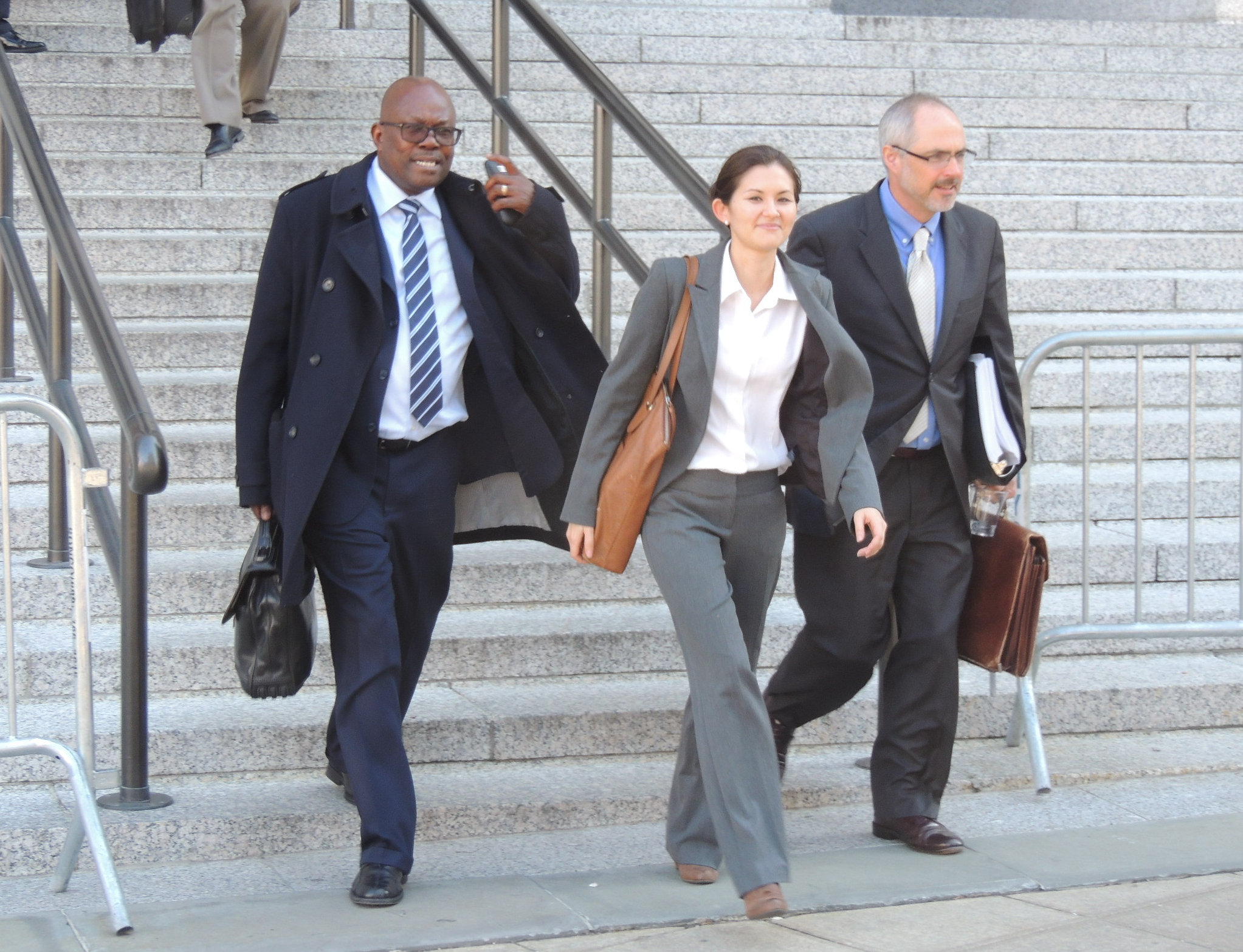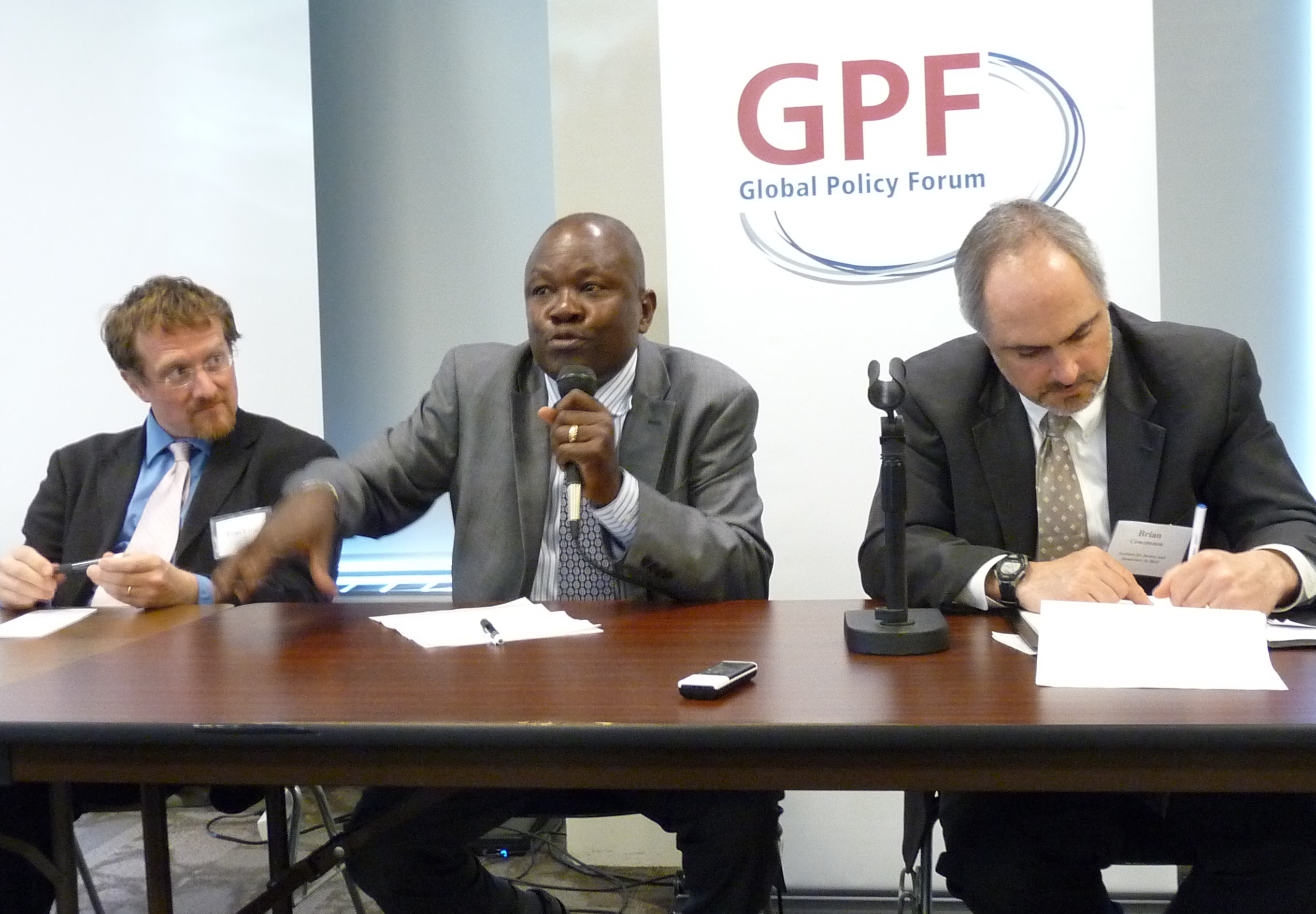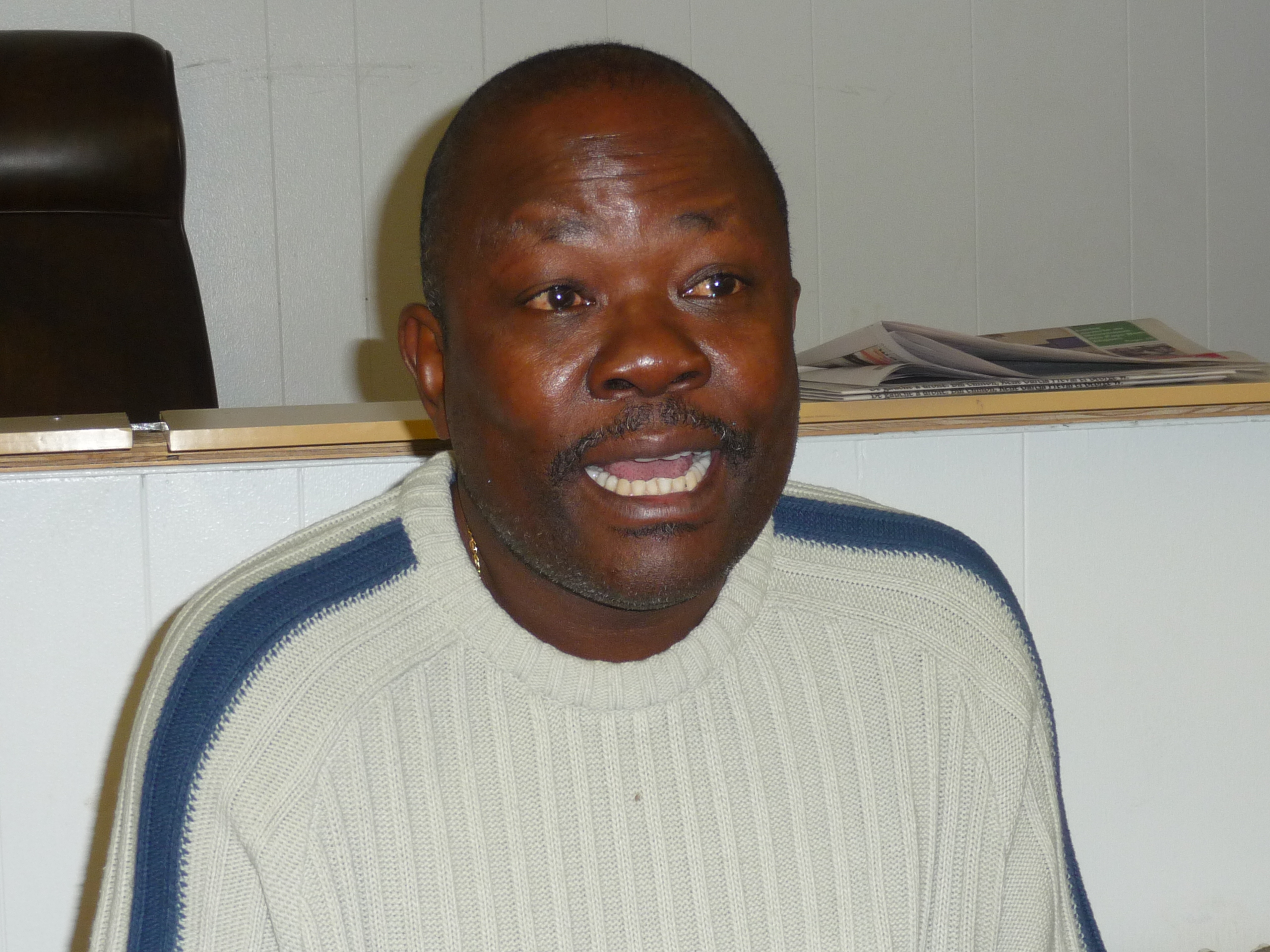In a freak car accident in the courtyard of his home in Delmas 33 on Mar. 27, Mario Joseph was grievously injured and burned, finally succumbing to his injuries at the UNIFA Hospital in Tabarre on Mar. 31.
We at Haïti Liberté have had our Port-au-Prince bureau based in Mario’s law offices since our founding in 2007. But we had known him for a decade before that when he and Brian Concannon, Jr. ran the Bureau des Avocats Internationaux (BAI) in an office right next to that of Haïti Progrès in a five-story building near the bottom of Port-au-Prince’s Avenue John Brown.
Over those many years, we came to know and love Mario as a close friend and comrade. With him, we participated in the forming and support of many popular organizations, and even parties, which held meetings at the BAI when it moved to 3, 2ème Impasse Lavaud.
Born in the Artibonite Valley’s small town of Verrettes on Jan. 26, 1963 (by his best estimate), Mario attended Haiti’s law school in Gonaïves from 1986 to 1990, setting him on the path to become one of Haiti’s foremost progressive attorneys.
We present below the obituary written by his long-time legal partner and collaborator, Brian Concannon, Jr..
Kim Ives
The Institute for Justice and Democracy (IJDH) is infinitely sad to announce that our collaborator of 29 years, Mario Joseph, passed away on Mon., Mar. 31, as a result of injuries sustained in a one-car accident.
Mario had led the Bureau des Avocats Internationaux (BAI) in Port-au-Prince since 1996, winning historic victories for victims of massacres by the Duvaliers and the de facto regime, victims of the UN cholera, sexual assault survivors, and political prisoners, among others. He persevered in this work through frustration, threats of death and arrest, the relentless advance of gang violence, and the uncountable obstacles that all Haitians struggle through every day.

Mario’s greatest legacy might be the legions of people he inspired and trained to win battles for justice around the world: his BAI colleagues, a whole generation of public interest lawyers in Haiti, the IJDH team, and dozens of us who daily use what Mario taught us to fight for justice in courts, on the streets, in academia, and in government service throughout Haiti, the Americas, Europe, and Africa.
Mario was born in 1963 in rural Verrettes, Haiti. He grew up, like many Haitians, in a household with no running water and not enough food. Although many of Mario’s neighbors never had the opportunity to learn to read, through perseverance, intelligence and good fortune, Mario was able to obtain scholarships to high school and the national teaching university, then work his way through law school.
Mario won international recognition, honorary degrees, and human rights prizes, but he never forgot where he came from. He was happiest when organizing for justice with grassroots activists, at the BAI office that he turned into an organizing center, in dusty urban streets, or under the shade of a remote village tree.

Mario’s eyes lit up with pride and love whenever he talked about his three girls, Marcia, Marcy, and Mayina.
We are grateful that Mario was able to receive skilled and compassionate treatment for his injuries, under unimaginably challenging conditions, from the medical staff at the University of the Aristide Foundation for Democracy Hospital and the teams from Zanmi Lasante and Partners in Health who jumped in to offer support.
Details on funeral services are not yet available. IJDH will host an online Celebration of Life for Mario at a date to be determined.
We do know that Mario’s fight will continue. The staff of both BAI and IJDH are devastated by this loss but are committed to extending Mario’s legacy of uncompromising advocacy for the rights of Haiti’s impoverished minority. We look forward to continuing to collaborate with everyone else who is inspired by Mario’s legacy.
Here is a brief biography of his life:

Mario Joseph, who the New York Times called “Haiti’s most prominent human rights lawyer,” led the BAI in Port-au-Prince, Haiti, from 1996 to 2025. During his more than 30 years of human rights work, Mario has spearheaded historic human rights cases, including the Raboteau Massacre trial in 2000, hailed as one of the most important human rights cases ever in the Western Hemisphere; Yvon Neptune v. Haiti, the first Haiti case ever decided by the Inter-American Court of Human Rights; claims against the United Nations on behalf of the victims of the cholera brought to Haiti by UN peacekeepers; and the claims of eight victims of former Haitian dictator Jean-Claude “Baby Doc” Duvalier. The Raboteau prosecution and the BAI’s cooperation with U.S. immigration officials led to the deportation of three former Haitian Generals, including the highest-ranked officer ever deported from the U.S. on human right grounds.
Mario Joseph provided social movements in Haiti with the legal support they needed to fight for democracy and basic human rights. The BAI’s Rape Accountability and Prevention Project demonstrated that the justice system can be compelled to respond fairly and competently to rapes against poor women. The BAI’s Progressive Lawyer Training Program built a generation of committed, trained public interest lawyers in Haiti, who went on to serve in the justice system, academia, and non-profits in Haiti.
Mario was awarded the Judith Lee Stronach Human Rights Award from the Center for Justice & Accountability, the Alexander Human Rights Award from Santa Clara University, and Honorary Doctorates from the University of San Francisco and Indiana University School of Law. He was a finalist for the 2013 Martin Ennals Human Rights Defenders Award.










[…] Source link […]